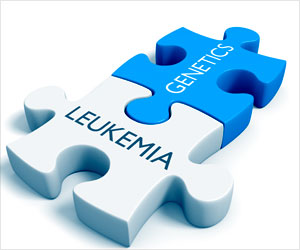Researchers have identified new targets for the treatment of chronic myeloid leukemia and other cancers.
- Chronic myeloid leukemia promoted by the BCR-ABL gene is resistant to treatment
- Imatinib is effective but provides only temporary relief
- Researchers have suggested that the development of drugs acting on two molecular targets c-Fos and Dusp1 could cure the cancer along with imatinib
Based on their research on laboratory mice, researchers from Cincinnati Children's Hospital Medical Centerfound two signaling proteins c-Fos and Dusp1 that promote the growth of certain cancers; targeting them along with other chemotherapy medications could help to cure the cancers.
"We think that within the next five years our data will change the way people think about cancer development and targeted therapy," said Mohammad Azam, PhD, lead investigator and a member of the Division of Experimental Hematology and Cancer Biology. "This study identifies a potential Achilles heel of kinase-driven cancers and what we propose is intended to be curative, not just treatment."
The research team worked on a type of blood cancer called chronic myeloid (CML). CML is treated with a chemotherapy drug called imatinib. Imatinib, however, gives only temporary relief and the cancer recurs. The BCR-ABL gene, formed by the fusion of the BCR gene from chromosome 22 and the ABL gene from chromosome 9, promotes the growth of CML. The cancer cells also have high levels of the c-Fos and Dusp1 proteins, which increase resistance to treatment.
The researchers used three different models - mouse models of CML, human CML cells, and mice transplanted with human leukemia cells to test three types of treatments:
Imatinib alone
A combination of the above treatments
As expected, the best response was obtained with the combination therapy administered for a month, with a cure noted in 90% mice.
Ttreatment targeted against c-Fos and Dusp1, feel the researchers, will also be effective in acute myeloid leukemia promoted by the presence of FLT3 gene, lung cancers promoted by the presence of the EGFR and PDGFR, and breast cancers that are positive for the HER-2 gene.
The study provides new targets for the development of medications that could possibly cure deadly cancers when used with available medications. More research in this direction can provide solutions to the treatment of resistant cancers.
Source-Medindia















